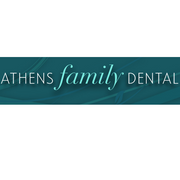
Chronic bad breath, known as halitosis, can be a frustrating and embarrassing issue to handle. Luckily, there are several ways to improve your symptoms and enjoy fresh breath again. Before visiting a dentist, learn more about the condition below.
What Causes Halitosis?
Poor Dental Health
Bad oral hygiene, such as not brushing or flossing daily, can leave foul-smelling bacteria deposited in the mouth. These can cause cavities or gum disease, and the bacteria will emit sulfurous compounds as they decay.
Failing to clean teeth thoroughly may also leave food particles stuck in the tonsils or between teeth. When food decomposes, it serves as yet another breeding ground for bacteria and a cause of bad breath.
Dry Mouth
Saliva is essential to oral health because it washes away food particles, breaks down organic matter, and has antimicrobial properties to fight disease and infection. Halitosis may indicate that you have dry mouth, which can be caused by medications or excessive consumption of alcohol or caffeine.
Tobacco Use
 Tobacco use leaves unpleasant odors in your mouth, and it also reduces saliva and weakens your body’s defenses against gum disease. Many studies have shown that tobacco use is harmful to general and dental health, which is why tobacco users should look into alternatives.
Tobacco use leaves unpleasant odors in your mouth, and it also reduces saliva and weakens your body’s defenses against gum disease. Many studies have shown that tobacco use is harmful to general and dental health, which is why tobacco users should look into alternatives.
Illnesses
Halitosis can indicate more serious conditions, including acid reflux, diabetes, or liver or kidney disease. If you have halitosis, your dentist may recommend meeting with a physician to determine whether you also have symptoms of these issues.
How Can You Prevent & Treat Halitosis?
Prevention
- Reducing sugar intake: The bacteria that naturally reside in your mouth will eat sugar residue and use it to reproduce, increasing the risk of halitosis.
- Limiting alcohol consumption: Alcohol accelerates dry mouth, stripping away protective saliva.
- Scheduling regular dental checkups: With expert advice from your dentist, you’ll have a better understanding of your oral health and can make informed decisions to improve your breath.
Treatment
Improving oral hygiene habits will have a positive impact on halitosis. Thorough brushing and flossing will reduce the risk of cavities and gum disease and the presence of harmful bacteria.
Your dentist may also recommend an antibacterial toothpaste or mouthwash to eliminate bacteria. Alternatively, if gum disease is already present, a professional cleaning may be needed to remove excess bacteria between the teeth.
If you have persistent halitosis, make an appointment with the dentists at Athens Family Dental today. These friendly professionals serve Clarke County, GA, with cutting-edge technology and over 30 years of experience to create effective solutions for various dental problems. They also offer routine care, including cleanings and checkups. Call (706) 548-3279 to schedule an appointment, or visit them online for more information about the team.
About the Business
Have a question? Ask the experts!
Send your question

